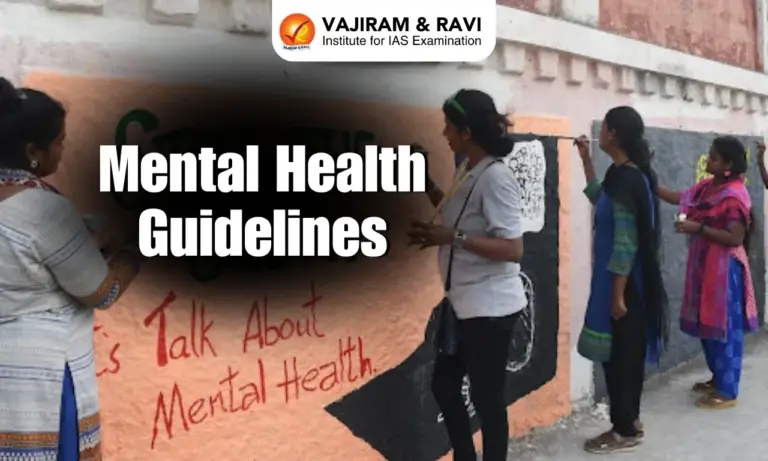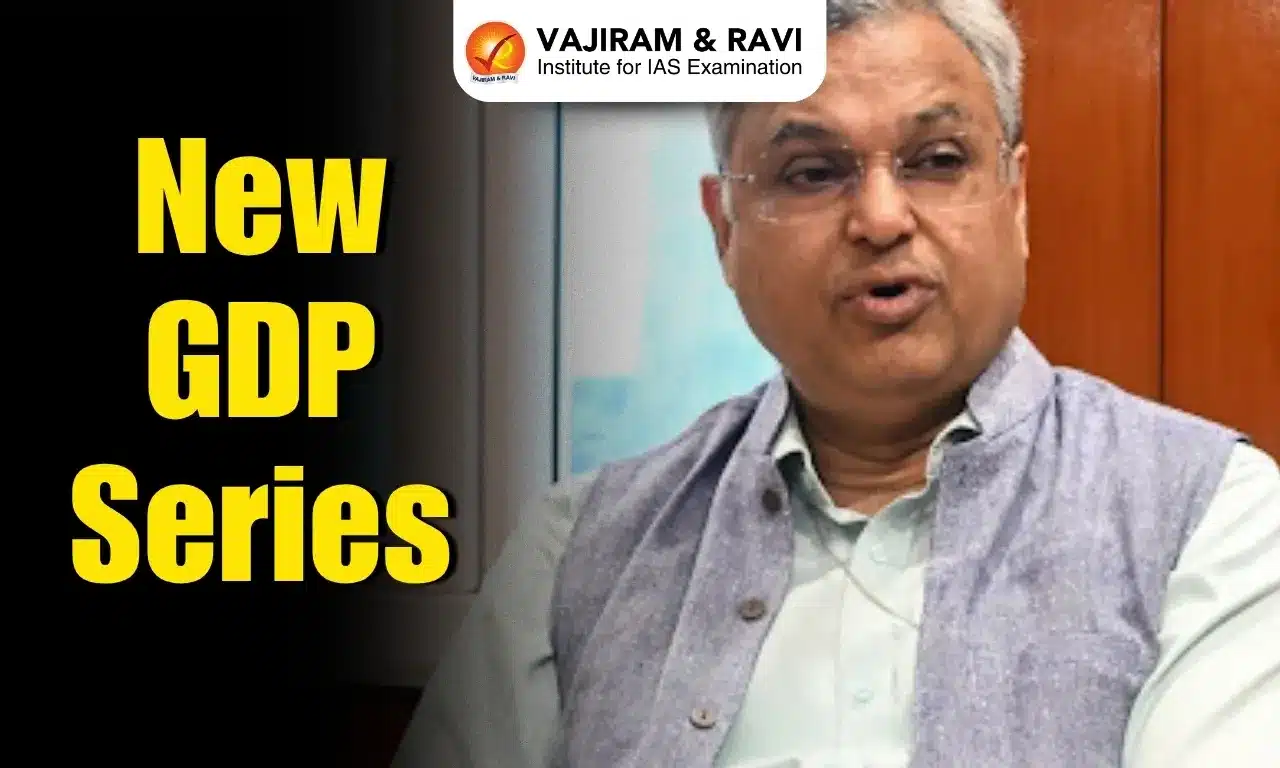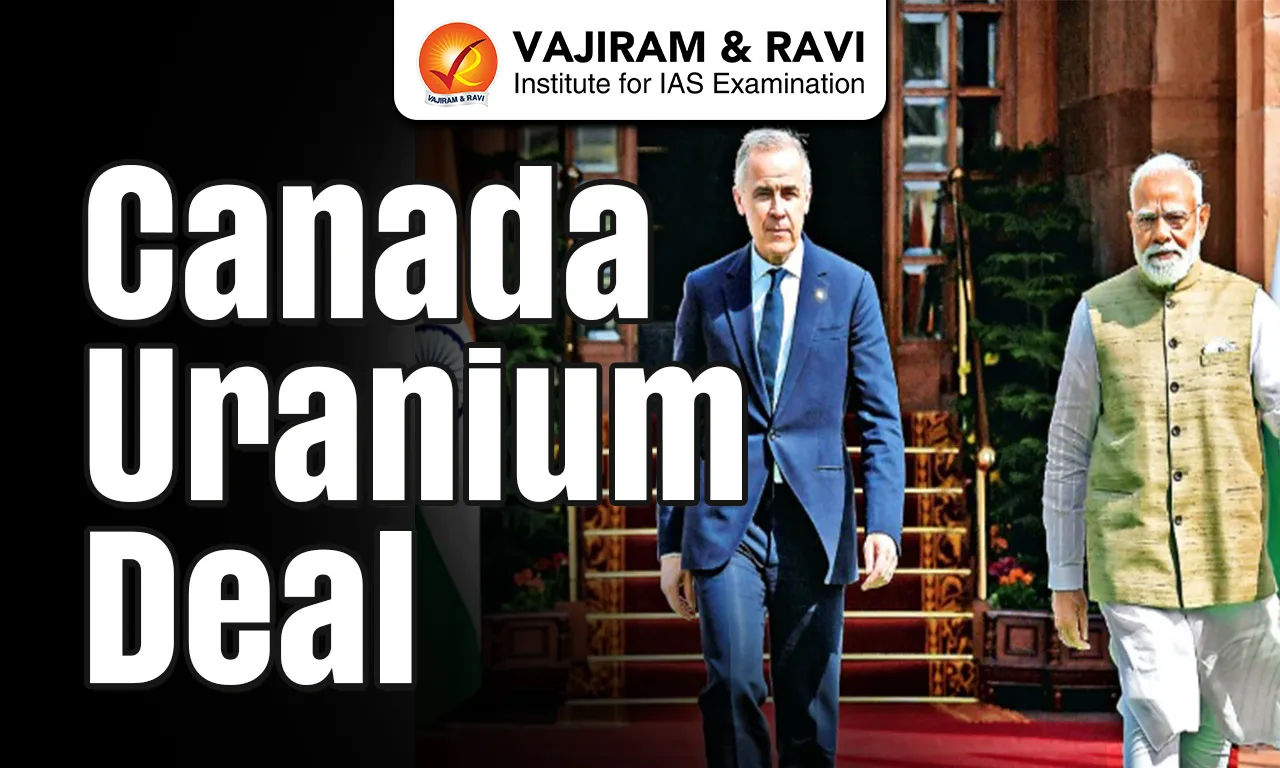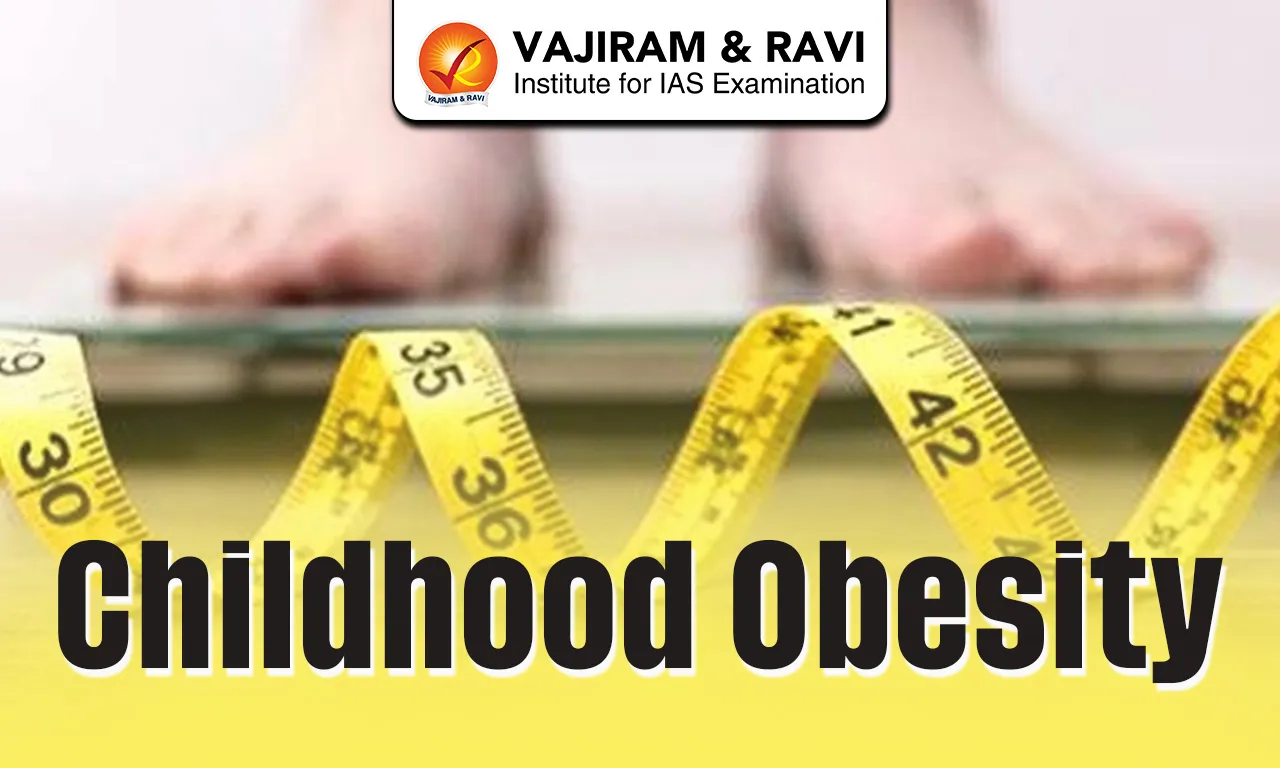Mental Health Guidelines Latest News
- The Supreme Court has issued guidelines to educational institutions across the country.
Introduction
- Rising cases of student suicides in India have prompted urgent judicial intervention.
- On July 26, 2025, the Supreme Court issued sweeping guidelines to educational institutions across the country, terming the growing mental health crisis a “systemic failure”.
- The judgment, issued by a two-judge bench, comes amidst increasing reports of suicides among students, particularly in high-pressure environments such as coaching centres and premier academic institutions.
- The Court directed a uniform, enforceable mental health policy applicable to all schools, colleges, universities, hostels, and coaching centres, irrespective of their affiliation or ownership.
Increasing Suicides on Campuses
- According to the National Crime Records Bureau (NCRB), 13,044 student suicides were recorded in 2022, comprising 7.6% of all suicides in the country.
- The number has increased sharply from 5,425 in 2001, underscoring a disturbing trend. At least 2,248 deaths in 2022 were directly attributed to exam failure.
- The Supreme Court observed that students are being driven into a “rat race” where the joy of learning has been eclipsed by anxiety, performance metrics, and parental pressure.
- This competitive grind often isolates students, especially those in residential coaching environments far from their homes.
- The Court stated, “Education is meant to liberate, not burden the learner… its true success lies not in grades or rankings, but in the holistic growth of a human being capable of living with dignity, confidence, and purpose.”
- The bench also described the institutional silence around mental health as a key factor exacerbating student vulnerability, warning that suicide cases cannot be viewed as isolated tragedies but rather as a collective social failure.
Key Supreme Court Directives
- In an unprecedented step, the Court issued 15 binding guidelines to be followed until a central regulatory framework is enacted.
- These apply to all educational institutions, public and private schools, colleges, universities, residential academies, hostels, and coaching centres.
- Mandatory Counsellors and Support Systems
- All institutions with 100 or more students must appoint at least one qualified counsellor, psychologist, or social worker trained in child and adolescent mental health.
- Smaller institutions must establish referral linkages with external mental health professionals.
- Staff must be trained twice a year by certified mental health experts.
- Infrastructure and Physical Safety Measures
- Residential institutions must install tamper-proof ceiling fans and restrict access to rooftops and high-risk areas to deter impulsive acts of self-harm.
- Ending Discriminatory Academic Practices
- Institutions were asked to end batch segregation based on academic performance, avoid public shaming, and refrain from setting unrealistic academic targets.
- Such practices were deemed detrimental to the mental health of vulnerable students.
- Institutional Accountability and Protection
- Institutions must create robust, confidential redressal mechanisms for complaints involving harassment, bullying, caste- or gender-based discrimination, and sexual assault.
- Retaliation against whistle-blowers or complainants will attract institutional liability.
- Failure to act promptly will be treated as administrative culpability with legal consequences.
- Policy Framework and National Coordination
- All institutions must adopt and publish an annual mental health policy, taking reference from government initiatives such as:
- Ummeed guidelines (Understand, Motivate, Manage, Empathise, Empower, Develop)
- Manodarpan, launched by the Ministry of Education during the COVID-19 pandemic
- National Suicide Prevention Strategy (India’s first nationwide strategy, released in 2022)
- All institutions must adopt and publish an annual mental health policy, taking reference from government initiatives such as:
- The Court also called for the formation of a National Task Force to institutionalise student mental health initiatives and suicide prevention mechanisms across the higher education landscape.
-
Background of the Verdict
- The judgment was delivered in a case involving the suicide of a 17-year-old NEET aspirant in Visakhapatnam, whose parents sought a CBI investigation after alleged lapses in the state police inquiry.
- While addressing the individual case, the Court widened its scope to frame a national response to student suicides, recognising the broader institutional apathy and lack of psychological safeguards across educational spaces.
Significance and Future Implications
- This landmark ruling by the Supreme Court marks a shift in recognising mental health as integral to the right to life and education.
- By mandating psychological support systems, regulatory oversight, and institutional accountability, the Court has provided a blueprint for a safer, more empathetic education system.
- However, the success of these measures will depend on:
- Timely notification and enforcement by states and Union Territories
- Adequate budgetary allocations for hiring professionals
- Sensitisation of staff and students toward emotional well-being
- It also underscores the need for collective societal change, moving from a culture of academic pressure to one that prioritises the well-being, dignity, and individuality of each student.
Last updated on March, 2026
→ UPSC Notification 2026 is now out on the official website at upsconline.nic.in.
→ UPSC IFoS Notification 2026 is now out on the official website at upsconline.nic.in.
→ UPSC Calendar 2026 has been released.
→ UPSC Final Result 2025 is expected to be released soon.
→ UPSC will release the UPSC Toppers List 2025 with the Civil Services final result on its official website.
→ Check out the latest UPSC Syllabus 2026 here.
→ Join Vajiram & Ravi’s Interview Guidance Programme for expert help to crack your final UPSC stage.
→ UPSC Mains Result 2025 is now out.
→ UPSC Prelims 2026 will be conducted on 24th May, 2026 & UPSC Mains 2026 will be conducted on 21st August 2026.
→ The UPSC Selection Process is of 3 stages-Prelims, Mains and Interview.
→ Prepare effectively with Vajiram & Ravi’s UPSC Prelims Test Series 2026 featuring full-length mock tests, detailed solutions, and performance analysis.
→ Enroll in Vajiram & Ravi’s UPSC Mains Test Series 2026 for structured answer writing practice, expert evaluation, and exam-oriented feedback.
→ Join Vajiram & Ravi’s Best UPSC Mentorship Program for personalized guidance, strategy planning, and one-to-one support from experienced mentors.
→ Check UPSC Marksheet 2025 Here.
→ UPSC Toppers List 2024 is released now. Shakti Dubey is UPSC AIR 1 2024 Topper.
→ Also check Best UPSC Coaching in India
Student Suicides in India FAQs
Q1. How many student suicides were reported in India in 2022?+
Q2. What guidelines has the Supreme Court issued for educational institutions?+
Q3. Which government initiatives were cited for mental health policy formulation?+
Q4. Are coaching centres included in the Supreme Court’s guidelines?+
Q5. What role will the National Task Force play?+
Tags: mains articles mental health guidelines upsc current affairs upsc mains current affairs


















